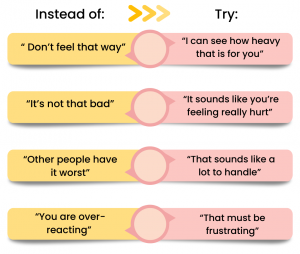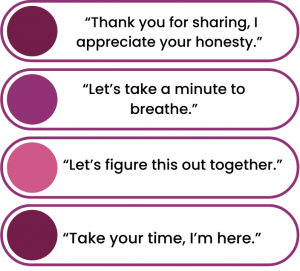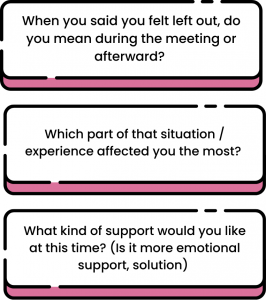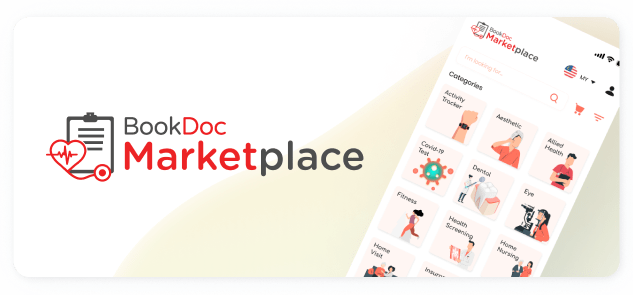
When was the last time you felt truly heard?
In a world full of opinions, advice, and constant noise, what most people truly crave isn’t a solution, it’s connection. We don’t always need someone to fix our problems. We just need someone to sit with us in them.
That is the quiet magic of empathy.
Empathy is a key element of emotional intelligence that allows us to better connect with others and support one another during difficult times. By definition, empathy refers to the ability to emotionally understand what other people feel, see things from their point of view and imagine yourself in their place.
How does empathy support your mental health?

- Reducing isolation and loneliness Empathy helps individuals feel less alone in their struggles by validating their emotions and experiences. Feeling heard and understood can help someone feels less isolated and opens up a safe space to connect with others.
- Enhances self-compassion Empathy is not merely about supporting others but it also extends to our own self. When we give the same care towards ourselves as how we would support a friend who is struggling, it enhances self-compassion and allows us to be kinder to our inner voices.
- Strengthen social relationships Empathy lies at the heart of a healthy and thriving relationship. By understanding and validating the feelings of others, it can help to build trust, enhance communication and the ability to resolve conflict effectively which in turn, strengthens relationship.
Can you have too much empathy?
Yes, you can.
Extending empathy shows how much you care and want to support another individual when they are going through a tough time. But it can also get to a point where it may be too overwhelming for you and lead to burnout. For example, being a caregiver can take an emotional and physical toll on an individual when they do not have the coping resources or support system to help them through.
That’s why it’s essential to balance empathy with self-care. Taking time to rest, recharge, and set healthy boundaries allows you to continue offering support to others without neglecting your own needs.
What are some of the strategies to start practicing empathy in our communication?

- Active Listening Active listening means giving your full attention and showing that you are present and genuinely interested in what the other person has to say. Some of the tips that you can try:
- Choose a quiet, comfortable space. If possible, find a quiet space and an environment to talk that is conducive for you and the other individual.
- Check-in with yourself first. Ensure that you are in the right headspace to talk. If not, gently let the person know that you will reach out to them at a later time in the day. For example: “I really want to be present for this conversation. Can we talk a little later today when I can give you my full attention?”
- Validating FeelingsValidation is acknowledging someone’s feelings and experiences as real and understandable even if you don’t fully agree or relate to their experience.

- Non-verbal communicationEmpathy isn’t just about what you say, it is also in how you show up. Your non-verbal communication like your body language, facial expressions, tone of voice and even silence can also convey empathy. Non-verbal cues can help others to feel safe and heard. Example:
- Sitting calmly and facing the person while making eye contact.
- Nodding while they speak
- Using a gentle tone
- Avoiding distracted behaviours (checking your phone, yawning, fidgeting)
- Calm responsesResponding with calmness helps to regulate the emotional tone of the conversation, especially when you are dealing with heavy emotions and topics. It shows that you are grounded and that you are able to hold space for the person.
Instead of reacting with judgement or defensiveness, say:

- Clarifying questions These are gentle follow-up questions that show you’re listening and want to understand better, not assume or jump to conclusions. Here are a few examples:

References:
- Cherry, K. (2024, July 3). What Is Empathy? Verywell Mind. https://www.verywellmind.com/what-is-empathy-2795562
- Corliss, J. (2021, February 22). Want to feel more connected? Practice empathy. Harvard Health. https://www.health.harvard.edu/blog/want-to-feel-more-connected-practice-empathy-2021022221992
- Robbins, M. (2021, February 5). Why Empathy is Important: How to Become More Empathetic. Mike-Robbins.com. https://mike-robbins.com/the-power-of-empathy/
- The Role of Empathy in Supporting Mental Health. (2025). Grandrisingbehavioralhealth.com. https://www.grandrisingbehavioralhealth.com/blog/the-role-of-empathy-in-supporting-mental-health













